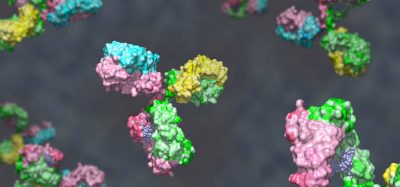Pathway and enzyme responsible for CKD thrombosis identified
Posted: 2 November 2021 | Anna Begley (Drug Target Review) | No comments yet
Scientists have discovered a novel pathway and enzyme that causes thrombosis in chronic kidney disease (CKD) patients, indicating a new drug target.


Researchers at the Boston University School of Medicine (BUSM), US, have identified a potential new signalling pathway and enzyme that may help further the understanding of blood clot formation in chronic kidney disease (CKD) patients and ultimately be targeted for therapeutic purposes.
NEWS: Scientists discover new clue for platelet activation to target thrombosis – READ HERE
Patients with CKD are at a higher risk of clotting (thrombosis) than patients with normal kidney function after vascular procedures. This complication predisposes them to potentially fatal events such as myocardial ischemia. Over the past decade, BUSM researchers have discovered metabolites in the blood of patients with CKD as potent drivers of thrombosis. In this new study, published in the Journal of the American Society of Nephrology, the team have discovered an important mediator of thrombosis in these patients.
The researchers used mouse models and human vessels to investigate a specific enzyme in thrombotic complications in CKD. “We have shown for the first time that a specific enzymatic pathway is altered in CKD patients. This pathway is regulated by an enzyme called Indoleamine 2,3-dioxygenase (IDO), which converts tryptophan amino acid to kynurenine, a potent pro-thrombotic metabolite in CKD patients. IDO1 can now be targeted as a potential treatment option,” explained corresponding author and associate professor Vipul Chitalia.
According to the researchers, the current US Food and Drug Administration (FDA)-approved antithrombotic do not work efficiently in these patients as they fail to target CKD-specific pathways. Moreover, these agents predispose patients at the higher risk of bleeding. “Therefore, a safe and effective antithrombotic for CKD patients is imminent. Addressing this huge unmet clinical need, our study defines a novel therapeutic target for heightened risk of thrombosis in CKD patients,” added Chitalia. While IDO-1 inhibitors are in clinical trials for other conditions, the researchers hope that they can be repurposed to prevent thrombotic complications in CKD patients.
Related topics
Drug Targets, Enzymes, In Vivo, Molecular Biology, Molecular Targets, Small Molecules, Therapeutics
Related conditions
Chronic kidney disease, thrombosis
Related organisations
Boston University School of Medicine (BUSM)
Related people
Vipul Chitalia MD PhD








